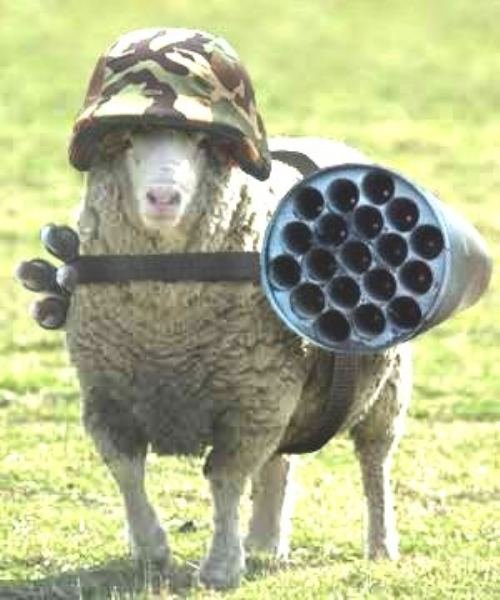
US Military Compared with Other Nations
< Return to subforum
By Blackflag | Jun 25 2015 11:31 AM
US Main Battle Tank: M1 Abrams
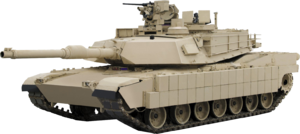
Why this is a bad MBT: The M1 Abrams has a sizable amount of armor and a very powerful gun, but there are two reasons that is fails in comparison to other MBT's. It is to expensive, takes to long to produce, and doesn't have as much armor as other MBT's of its generation.
What makes a good MBT: A good main battle tank is well armored and cheap. It is able to withstand attacks on the front line, and has a cannon capable of penetrating the armor on other MBT's. Some exceptions to the rule include the PT-91 Twardy, which is lightly armored, but has one of the longest ranged cannons in the world for a MBT, and is incredibly fast for its type. These improvements can make give it superiority to other tanks in certain tactical situations.
Here are some tanks that are better than the M1 Abrams
Soviet T-90:

German Leopard 2:
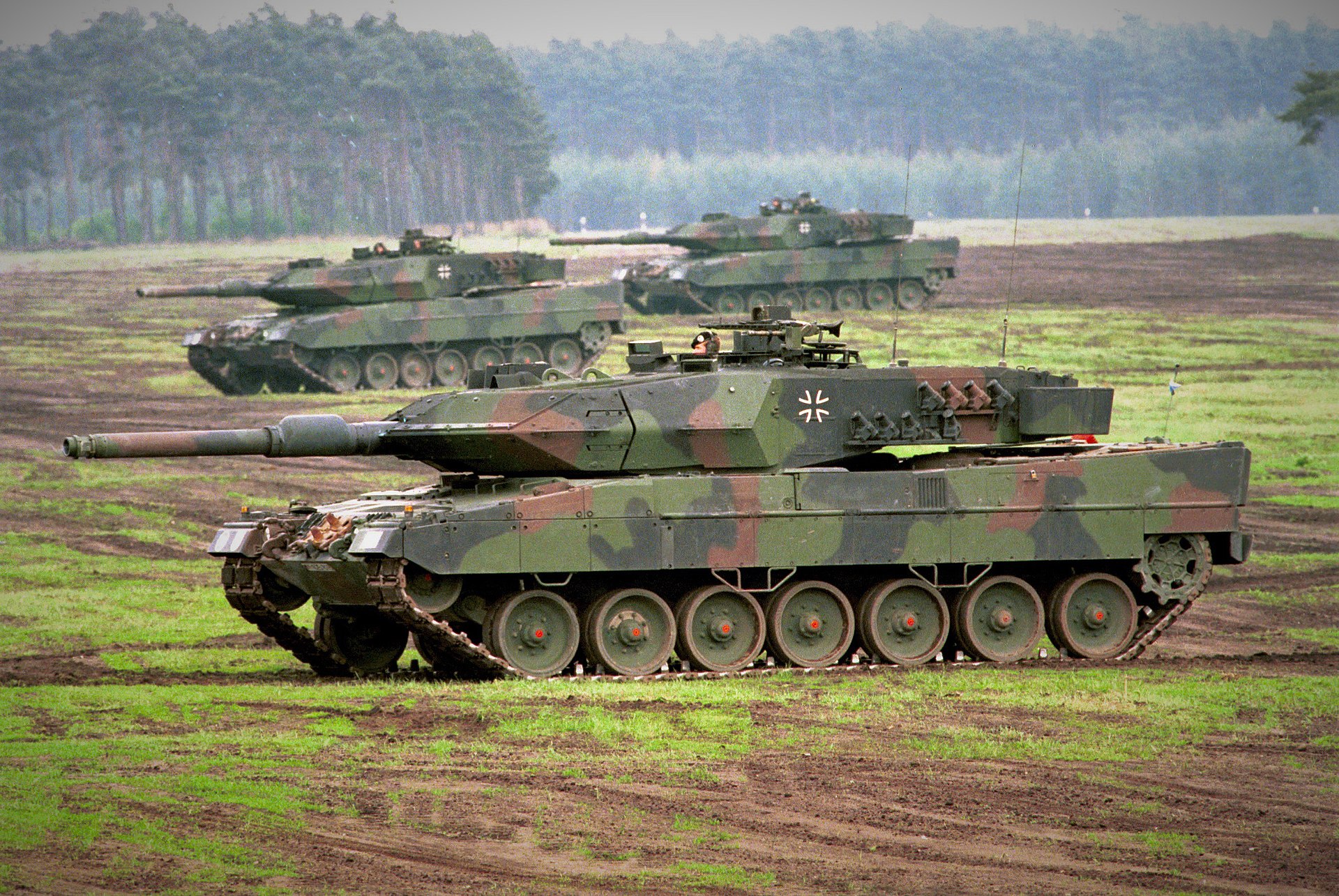
German Leopard 1:

Israeli Merkava:

Polish PT-91 "Twardy":

US Light Tank: M551 Sheridan

Why this is a bad light tank: The M551 Sheridan is a really bad light tank for a multitude of reasons. The foremost being that it isn't actually a light tank, despite being what it was designed for. It is to clunky to be used for serious reconnaissance, to big to fit through narrow streets, and above all its cannon is not designed for light tank operations, but rather engaging other tanks.
What makes a good light tank: A good light tank is incredibly fast, maneuverable, and has a gun capable of destroying trucks, armored personnel carriers, armored anti-air vehicles, and infantry fighting vehicles. The light tank should never be sent to engage other tanks, but rather probe defenses and take out light armored targets, which can include artillery and anti-air.
Soviet T-90:

German Leopard 2:

German Leopard 1:

Israeli Merkava:

Polish PT-91 "Twardy":

US Light Tank: M551 Sheridan

Why this is a bad light tank: The M551 Sheridan is a really bad light tank for a multitude of reasons. The foremost being that it isn't actually a light tank, despite being what it was designed for. It is to clunky to be used for serious reconnaissance, to big to fit through narrow streets, and above all its cannon is not designed for light tank operations, but rather engaging other tanks.
What makes a good light tank: A good light tank is incredibly fast, maneuverable, and has a gun capable of destroying trucks, armored personnel carriers, armored anti-air vehicles, and infantry fighting vehicles. The light tank should never be sent to engage other tanks, but rather probe defenses and take out light armored targets, which can include artillery and anti-air.
Here are some light tanks that are better than the M551 Sheridan...
British FV101 "Scorpion":

Soviet PT-76:

French AMX-10:

Chinese Type 63:

Revolutionary PL-01 Polish Light Tank (Prototype Stage


US Armored Personnel Carrier: M113 Armored Personnel Carrier

Why this is a bad APC: An armoured personnel carrier is classified as a troop transport vehicle not equipped with anything above a 20mm gun. The use of the APC is becoming more questionable with the rise of the IFV, but it is still a good cheap troop transport that is quick to produce. The reason the M113 Armored Personnel Carrier is a bad APC is because it lacks the one thing that APC's have the potential for that IFV's do not. Speed.
What makes a good APC: The APC that offers the most speed is the best, with protection being the added bonus. They are cheap troop transports that can be quickly produced, used to carry troops around the front lines. An armored personnel carrier would never be seen carrying troops through a battlefield. That is what the Infantry Fighting Vehicle is for, so the essence of speed heavily outweighs that of added protection, which is why a good APC prioritizes speed over protection.
Here are some APC's better than the M113 Armored Personnel Carrier...
Canadian AVGP "Grizzly":

Chinese WZ-523:

French VAB:

Soviet BTR-90 (Best APC in the world

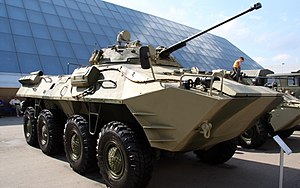
US Infantry Fighting Vehicle: M2 Bradley Infantry Fighting Vehicle

Why this is a good IFV: Yes, you read that correctly. This is actually a really good Infantry Fighting Vehicle. The reason why the M2 Bradley is so good is because not only is it fast, maneuverable, and offers really good troop protection, but it also has a devastating gun with a rotating axis.
Why the M2 Bradley needs to be even better: The Infantry Fighting Vehicle is quickly becoming the top weapon of this generations warfare. Infantry is being outfitted with all the technology to take down tank squads and even aircraft. Putting infantry in a vehicle that can shrug off bullets and penetrate armor is an unstoppable combination. The Infantry Fighting Vehicle is evolving fast, and it is important that we do not lag behind. The M2 Bradley is a great IFV, but there are a lot of other great IFV's as well.
Here are some IFV's that are just as good, if not better, than the Bradley M2...
Austrian Pandur II:

Canadian Cougar:
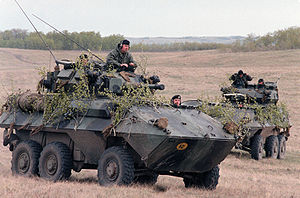
Chinese Type 97:

Georgian "Lazika" IFV:
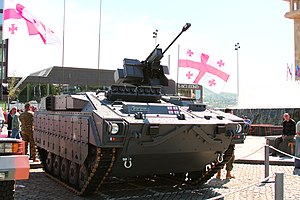
German Marder 1:
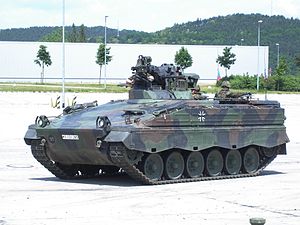
German "Puma" IFV (Has as much armor as an MBT


The rest of the technologies I'll show are from the US Navy. Almost all of them are good, so I'll only bother to show naval classes which are directly competing with US naval classes.
US "Nimitz" Class Aircraft Carrier:

Soviet "Admiral Kuznetsov" Class Aircraft Carrier:

British "Centaur" Class Aircraft Carrier:

Italian "Giussepi Garabaldi" Class Aircraft Carrier:

French "Charles De Gaulle" Nuclear Powered Aircraft Carrier:
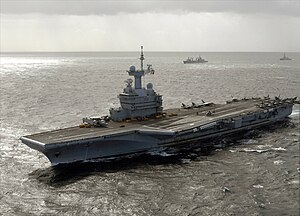
US "Ticonderoga" Class Cruiser:
Soviet "Kirov" Class Cruiser:
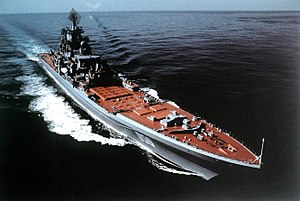
There are also a lot of Submarine classes which would take me centuries to research, so I'll shorten that area up and say that the submarines of Russia and several Baltic Sea countries are a million times better than the US submarine prototype, the "Virginia" Class.

By nzlockie | Jun 25 2015 3:20 PM
Blackflag:
This is our Kiwi Drone.
To be honest, we're still trying to iron out the bugs in it. It doesn't respond to remote commands very well and it usually can't be bothered reporting back.
It's no good as a defensive weapon as it tends to just run away if anyone comes near it.
It's probably more of a semi-autonomous unmanned offensive weapon. We basically wind 'er up, point her away from our side and let her go.
Not sure, but I'm pretty sure it's better than your guys equivalent.

By Blackflag | Jun 25 2015 3:59 PM
nzlockie:
New Zealand has a pretty advanced arsenal, but the fact that you guys import weapons rather than produce them ingeniously hurts your economy.
NZLAV (Bought from Canada) :
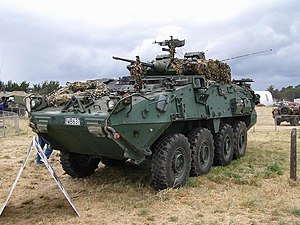
Kaman SH2:
Steyr Aug:


By Blackflag | Jun 25 2015 4:05 PM
nzlockie:
To be fair, we did strap bombs on to camels in Afghanistan in the 80's

By nzlockie | Jun 25 2015 4:13 PM
Blackflag:
Yeah probably the biggest problem with our Armed Forces is that they don't have enough arms.
And by "arms" I mean those things between your hands and your shoulders.
Not to mention the fact that our "Navy" consists of literally two combat boats. Pretty awesome considering we're an Island nation.
We have lots of different sizes of Helicopters, (we're trying to collect the set) but our "Airforce" doesn't actually have any planes capable of shooting things.
At least we have one of the world's elite special forces - they'll see us right.

By Blackflag | Jun 25 2015 4:31 PM
nzlockie:
One of the obligations of your nation is the defense of The Cook Islands, Niue, and Tokelau. That seems difficult when your navy is smaller than the ships in service of the Tongan Marine Corp.
It doesn't make sense how much money the NZDF puts into its army while neglecting its navy and airforce. The New Zealand military leaders seem pretty content with a specialized rapid deployment force, but I personally believe we could use more nations contributing to maritime security. Piracy from Africa reaches as far as Ceylon, and now there is a lot of piracy growing out of the Philippines. That stuff can grow if not contained.

By nzlockie | Jun 25 2015 5:09 PM
Blackflag:
To be fair or Navy has 11 boats, Tonga only has six.
I was referring to combat boats, of which we have two. Tonga has none.
We do our part, for the last few years we've contributed 50% of our fighting navy to the UN forces deployed in the gulf of Aden.
Also we were actually commanding the entire operation for a while there.

By Blackflag | Jun 25 2015 6:43 PM
nzlockie:
Yeah, operations rotate between members. It is the same system as NATO, although some countries omit the responsibility of commanding theater forces.
Still, not only does yo need a navy ready to assist your allies and UN operations, but you also need a navy capable of defending your own territorial waters.
I wonder why all the pirates hang out in Somalia to be honest.

By admin | Jun 26 2015 2:05 AM
Blackflag:
It doesn't make sense we have an NZDF at all.
This sounds like an ideal time for me to put up another challenge on the topic...
I'm the main developer for the site. If you have any problems, ideas, questions or concerns please send me a message.
Let's revive the forums!
Let's revive the forums!

By Blackflag | Jun 26 2015 3:03 AM
admin:
Because civil defense is important mate. The reason countries don't get invaded constantly like they did in past centuries is because we have a bunch of other countries who will drop the hammer upon aggression. For this luxury every nation needs to play their part though. Yeah, I guess a small country could sit back knowing it will get protected by bigger countries anyways, but that isn't being a very good ally, and usually the reasons nations have allies to begin with is because they fought alongside each other in war.
To think that the world would be more peaceful if half of the world put down their guns and the other half didn't is naive. That, and war can be pretty rewarding to those who are left alive.

By Blackflag | Jun 26 2015 3:08 AM
Force used to be the primary currency of the world. In the past, a nation could not achieve anything with another nation without some kind of leverage of power. Forget trade deals and diplomacy. At the end of the day, your nation could be as rich as possible, but if it doesn't have a good military, warmongering people WILL invade it and WILL take those coffers for themselves.
Napoleon once said, "For a warlike people, invading a prosperous nation is never a bad thing"

By admin | Jun 26 2015 4:38 AM
Blackflag:
Nations don't attack nations because they feel like picking on little guys. Nations attack each other because there are scarce resources and people get jealous. For as long as there is hunger, disease, poverty etc in the world, there will be war, regardless of how big the guns are. It's no secret, nor is it a coincidence, that more developed nations are more peaceful. That's because critical resources are less scarce there. By developing militaries further, then, you do not create conditions for peace. Only by human development do you create peace.
I don't believe civil defense has a role in the modern world. If we dedicated those same resources that we currently dedicate to creating bigger guns, we could easily solve for almost all the world's basic problems of scarcity with those resources. Humanity wastes so much effort on trying to kill each other, but wars are a negative-sum game. The losses of the losers always far outweigh the gains of the winners. It takes a broad perspective to see that, but when you're starving and need to go to war to get your critical resources, then war is a lot more understandable.
For true peace, then, it follows that we need true contentment in the world, not ever more armaments. Indeed, arms only create justifications for future wars and oppression. It's not a helpful moral framework. Better to try to create a world where such conditions cannot arise. I believe all nations should lay down their arms, but for various pragmatic reasons (largely driven by ideology) that change needs to come more gradually in a species gripped by a culture of violence. Humanity is used to the idea that in order to gain we must take from another. Prior to the late middle ages, all economics was closely linked to religion because nobody could really figure it out. Now we are just scratching the surface in answering the question of how a moral, peaceful and compassionate society can be pragmatically plausible.
I put up another debate challenge. Anyone is free to take it.
I'm the main developer for the site. If you have any problems, ideas, questions or concerns please send me a message.
Let's revive the forums!
Let's revive the forums!

By Blackflag | Jun 26 2015 10:00 AM
Nations don't attack nations because they feel like picking on little guys. Nations attack each other because there are scarce resources and people get jealous.
Maybe a portion of the world, but most people are just plain greedy. It is really simple actually. If a country has the power to make itself stronger through warfare than it will. There is no option for warfare anymore because every nation thoughout the world stands up for each other.
It's no secret, nor is it a coincidence, that more developed nations are more peaceful. That's because critical resources are less scarce there. By developing militaries further, then, you do not create conditions for peace. Only by human development do you create peace.
They are allowed to be peaceful because warmongering people's are decentivized from attacking them. And if they could attack other nations successfully, they would.
For true peace, then, it follows that we need true contentment in the world, not ever more armaments. Indeed, arms only create justifications for future wars and oppression. It's not a helpful moral framework. Better to try to create a world where such conditions cannot arise. I believe all nations should lay down their arms, but for various pragmatic reasons (largely driven by ideology) that change needs to come more gradually in a species gripped by a culture of violence. Humanity is used to the idea that in order to gain we must take from another. Prior to the late middle ages, all economics was closely linked to religion because nobody could really figure it out.
Here is where I expose your true naivity...
I am Gehnghis Khan with an army of 10,000. You are a rich Polish Wladca with 60 knights under your command. Give me a reason not to attack you. Incentivize me.
Now we are just scratching the surface in answering the question of how a moral, peaceful and compassionate society can be pragmatically plausible.
You know how you create a peaceful and compassionate society? Having people's of different creeds and backgrounds stand up for each other in the face of oppression. Yeah, small nations like New Zealand are not getting into a war anytime soon, but other nations throughout the world ARE in a state of war, and they ARE asking for our help.
Ukraine, Norway, and the Baltic States territorial waters are being incurred upon by Russia. China has made three unwarranted claims on Indian lands, all of which they have tried to enforce, with force. China would also bombard and invade Taiwan at any minute, if it were not for their huge garrison.The worlds most oppressive dictatorship of Eritrea has incurred on neutral Djibouti's lands in an attempt at bolstering its strategic position for a war with democratic Ethiopia. Armenia and Azerbaijan are on the verge of large scale conflict over silly things like irridentalism and nationalism. North Korea is launching scud missiles on South Korean territorial islands, building tunnels underneath the DMZ, and sending drones over the border to scout defenses. Pakistan has written into its military command doctrine the nuclear bombing of New Dehli and Bombay if India is to build up forces in Kashmir.
If you haven't got the picture yet, the world is in a very precarious state and on the verge of several large scale conflicts. The only reason they haven't blew up already is because there are armed citizens who are going to defend their countries in the face of aggression. Small nations like New Zealand and Bulgaria can opt out of assisting the continuing security of other nations, but when all your allies are gone, who is going to stand up for you?

By admin | Jun 26 2015 4:54 PM
Blackflag:
I think you missed an important point of history: the vast majority of the Mongol "conquests" came about without warfare.
A big part of the Mongol strategy was to make their armies appear bigger than they really were. They then sent emissaries to all the various towns asking for their surrender. If their heads came back chopped off, then they fought. Otherwise they just rode on past to the next lot of towns. That's why it took years to take out the Russians, and only months to take out the Persians. Even their battle tactics, and particularly those masterminded by Subutai, heavily relied upon giving an impression of a "safe" route for their enemy to follow (whether actually safe as it often was, or not). As ironic as it sounds, the genius of the Mongol conquests was that they understood how to win a war largely without fighting. Even in sieges, the Mongols would more frequently cut off the water supply than actually do any fighting. In battle, unlike the European tactic of charging at one's enemy and engaging them in combat, the Mongols used things like smokescreens and calling out false orders to get the European forces to attack each other, tactics that the Polish etc were entirely unprepared for because they felt the only way to win a war was to fight it.
The reason for those conquests wasn't because Ghengis found a bunch of horsemen and got greedy. It was economic. Mongolia when Ghengis was young was constantly at war with itself and totally impoverished, not to mention an effective vassal of China. It was this poverty that both drove Ghengis to unite the tribes, and which caused the tribes to accept. The closest modern analogy is ISIS - young people, big weapons, got nothing better to do than plunder and rape. If there was employment and wealth and not so many weapons in Iraq, then there most likely wouldn't be violence. Only problem is ISIS haven't figured out how to win without violence yet.
Look at the streets of your own country of America. It's not the rich who go to war, but the poor.
I'll save the rest for our debate.
I'm the main developer for the site. If you have any problems, ideas, questions or concerns please send me a message.
Let's revive the forums!
Let's revive the forums!

By Blackflag | Jun 26 2015 5:14 PM
admin:
Non Sequitor 100%. I don't know where you were going with this, because to me it looks like you are ignoring a simple question by giving some dodgy history on the Mongols, which is funny because my I didn't make a statement, I just asked you a question.
A big part of the Mongol strategy was to make their armies appear bigger than they really were. They then sent emissaries to all the various towns asking for their surrender. If their heads came back chopped off, then they fought. Otherwise they just rode on past to the next lot of towns. That's why it took years to take out the Russians, and only months to take out the Persians. Even their battle tactics, and particularly those masterminded by Subutai, heavily relied upon giving an impression of a "safe" route for their enemy to follow (whether actually safe as it often was, or not). As ironic as it sounds, the genius of the Mongol conquests was that they understood how to win a war largely without fighting. Even in sieges, the Mongols would more frequently cut off the water supply than actually do any fighting. In battle, unlike the European tactic of charging at one's enemy and engaging them in combat, the Mongols used things like smokescreens and calling out false orders to get the European forces to attack each other, tactics that the Polish etc were entirely unprepared for because they felt the only way to win a war was to fight it.
The reason for those conquests wasn't because Ghengis found a bunch of horsemen and got greedy. It was economic. Mongolia when Ghengis was young was constantly at war with itself and totally impoverished, not to mention an effective vassal of China. It was this poverty that both drove Ghengis to unite the tribes, and which caused the tribes to accept. The closest modern analogy is ISIS - young people, big weapons, got nothing better to do than plunder and rape. If there was employment and wealth and not so many weapons in Iraq, then there most likely wouldn't be violence. Only problem is ISIS haven't figured out how to win without violence yet.
^ So as I was saying, all this nonsense above doesn't answer my question. If you need another example then I'll give it though.
WW2 just ended and the Nazis won. Now they are amassing an army on the border with Switzerland, which they had planned invasions for as early as 1942. You are the leader of Poland in this testing time. What incentive do I have not to invade your country? What can you do to stop me?

By Blackflag | Jun 26 2015 5:16 PM
The closest modern analogy is ISIS - young people, big weapons, got nothing better to do than plunder and rape. If there was employment and wealth and not so many weapons in Iraq, then there most likely wouldn't be violence. Only problem is ISIS haven't figured out how to win without violence yet.
Maybe so, but what if the countries Daesh is fighting didn't have militaries and the world powers don't want to get involved on their behalf?

By Blackflag | Jun 26 2015 5:17 PM
Blackflag:
You are the leader of Poland in this testing time.
*Switzerland
